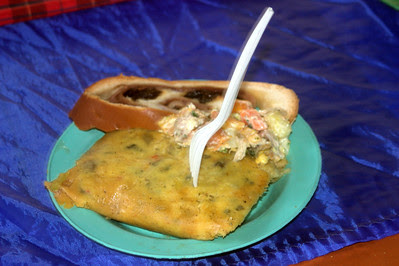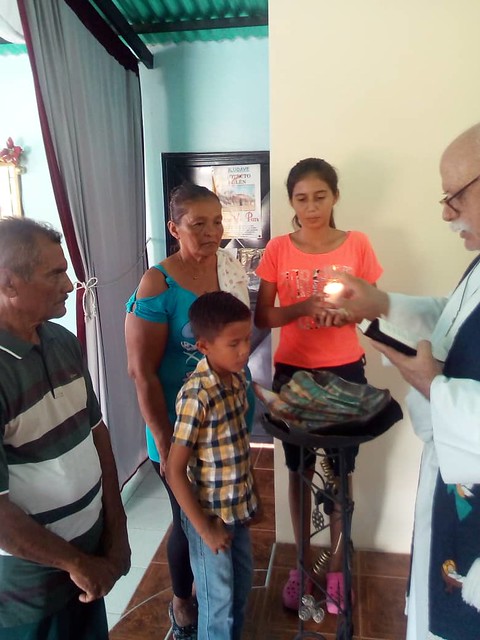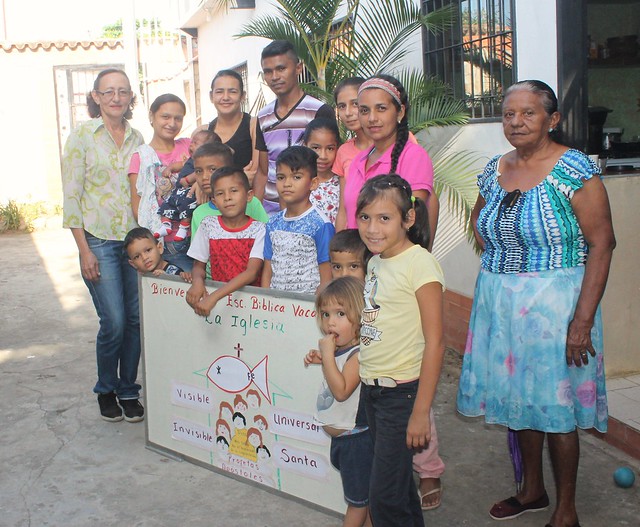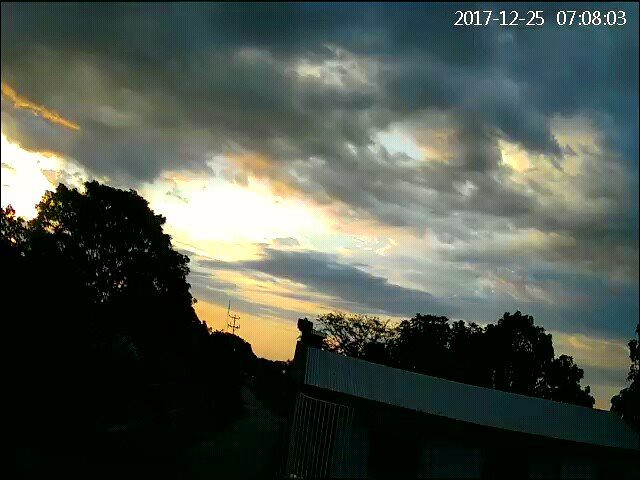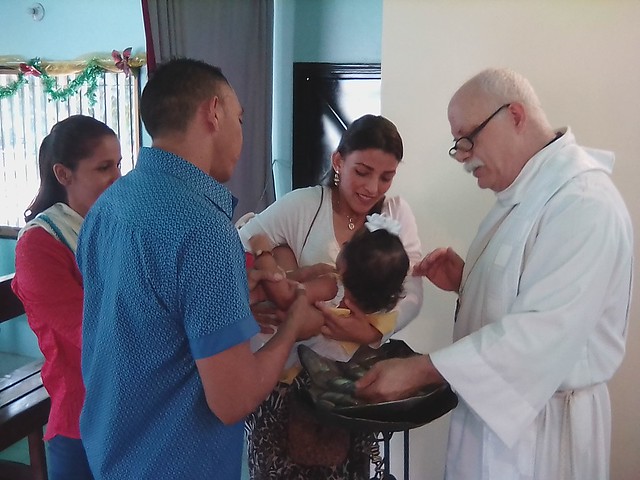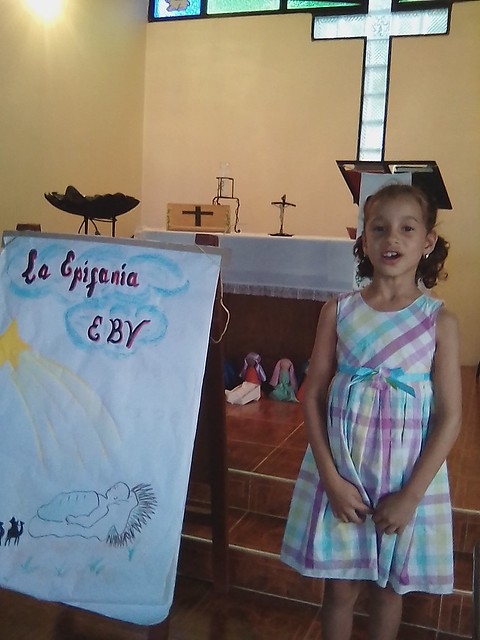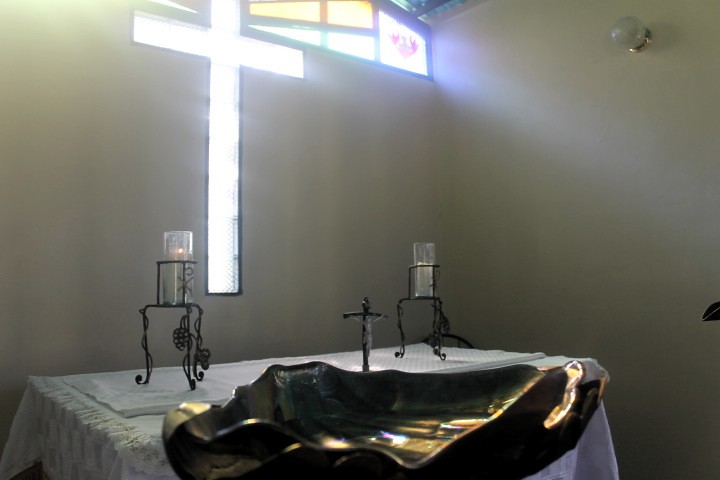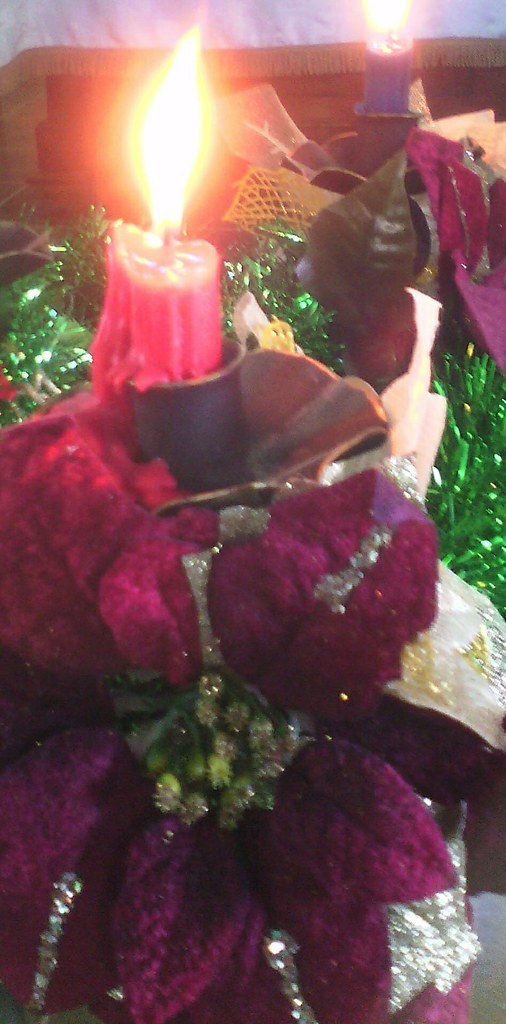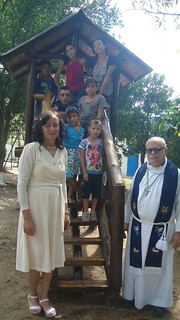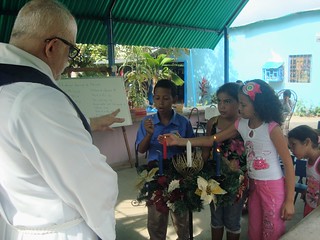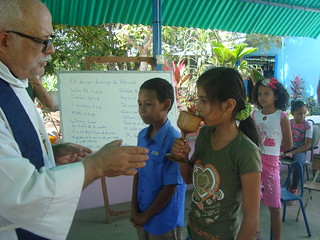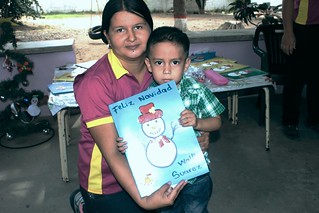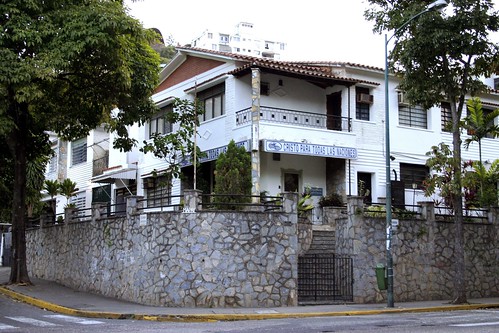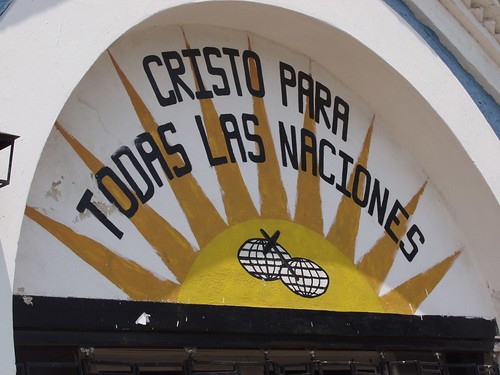For our afternoon Bible study on December, we had the youth and children color a picture of the Holy Family’s flight to Egypt. The Scriptures provide no descriptions of Mary riding a donkey, either to Bethlehem or Egypt, but it only makes sense that she would, given the distances involved and that, in one instance she was nearly ready to give birth and cradling a small child on way to Egypt.
In Venezuela, as in most Spanish-speaking countries, December 28 rather than April 1 is the day for pranks, practical jokes and hoaxes. In Caucagua, Venezuela, there is every year an elaborate festival based on the fact that, before slavery was abolished, African slaves would be given that day off. During that time, they would be free to mock their masters. The Monkey Dance of Caicara de Maturín, based on indigenous traditions, takes place on December 28 and has become a major tourist attraction.
According to our historic church calendar, December 28 is the day we remember the Holy Innocents, the male babies of Bethlehem who were massacred by order of King Herod the Great. The rationale for the jesting and tomfoolery is that the Magi made a fool of King Herod by telling him they would lead him to the Christ Child, but departing by a different route (Matthew 2:7-12).
So, why do our churches remember the Holy Innocents two days after Christmas when we celebrate Epiphany, the visit of the Magi, on January 6? Chronologically, the Magi arrived in Bethlehem about two years after the shepherds on the night of the Savior’s birth. That is why Herod asks the Magi when they first saw the star (Matthew 2:7). The star appeared to them on the night of Christ’s birth and it took them two years to travel to Jerusalem (the Magi probably lived in what is nowadays Iran or Iraq). The massacre of the infants definitely took place after the Magi left.
But the purpose of the church calendar is not simply to teach the chronology of our Lord’s life, but also to highlight certain themes when most appropriate. The festival of the Holy Innocents is the dark side of Christmas, a counterpoint to all the love, peace and good will.
The light of Christ first shone, and continues to shine, in a very dark world. Like Herod, there still are those who say they want to find the light, but only want to put it out.'Tis the season for hallacas
It would not be Christmas in Venezuela without the traditional holiday meal of hallacas, pan de jamón (bread filled with ham, raisins and olives) and potato salad. Hallacas resemble Mexican tamales, but do not say that out loud. Tamales are more corn dough than filling, while the hallaca's rich filling is surrounded by a very thin layer of dough. Hallacas are made by stuffing a mixture of seasoned meats (chicken, beef and pork), olives, raisins, and capers into a masa (corn dough) made from a blend of cornmeal and various spices, then boiling it while wrapped in banana leaves. The filling can vary from region to region and even from family to family. Hallacas are not only served for Christmas dinner, but given as gifts. After our Christmas Eve service on December 24, we served all who attended a dinner of hallacas, pan de jamón and salad. We sent packages of hallacas to shut-ins around the neighborhood. And we had enough left over to have potato salad and pan de jamón for our breakfast on Christmas Day!
 We were able to celebrate the second Sunday of Advent (Populus Zion) with the members of Corpus Christi Lutheran Church. The service was held in their roofed patio because of the breakdown of the electrical system in the church building. Due to car trouble, we were not able to attend their annual Christmas dinner. But they sent Eliezer Montoya with a care package of cake and hallacas, plus a bottle of sangria wine. Luz Maria and I used the sangria to toast the New Year.
We were able to celebrate the second Sunday of Advent (Populus Zion) with the members of Corpus Christi Lutheran Church. The service was held in their roofed patio because of the breakdown of the electrical system in the church building. Due to car trouble, we were not able to attend their annual Christmas dinner. But they sent Eliezer Montoya with a care package of cake and hallacas, plus a bottle of sangria wine. Luz Maria and I used the sangria to toast the New Year. Once again, we would like to thank LeadaChild, a mission society based in Olathe, Kansas, for supporting our Christian education initiative. Because of LeadaChild's support, not only our afterschool tutoring students, but Luz María's teaching assistants (all high school students and communicant members of the mission) continue to get good grades.
Here are some thoughts from Dr. Phil Frusti, executive director of LeadaChild:
"Some fruit of our Christian labor can be seen quickly, especially when we provide human care and acts of mercy and service to those in need or experiencing great hardships. However, the fruit of our labor in Christian education may not be revealed for many years… sometimes generations. Educational ministry and mission is an 'in it for the long haul' commitment. Children attend school for many years; discipleship is an ongoing and drawn-out process. For many educators, they may not experience the fruit in the lives of many of the children that they helped develop through their teaching, correction, encouragement…. and especially prayer."









